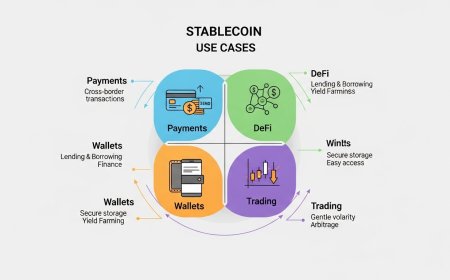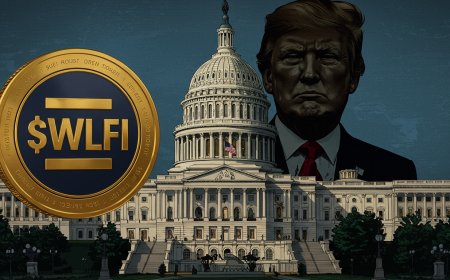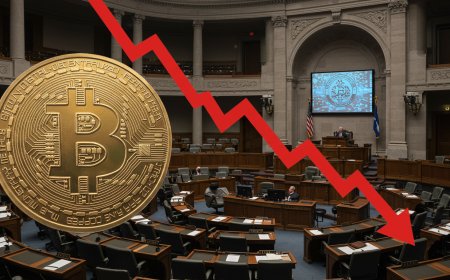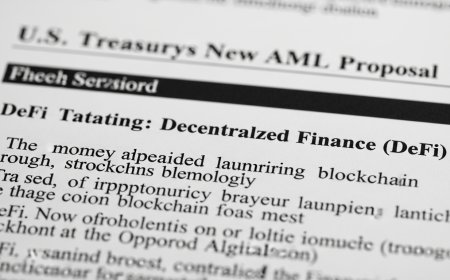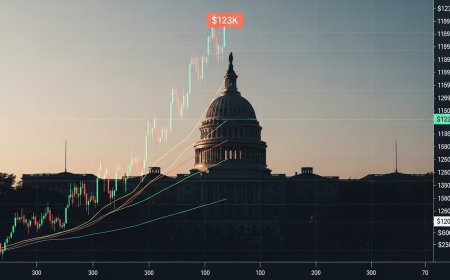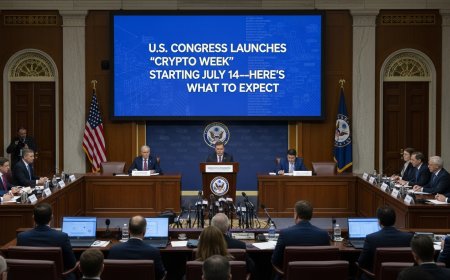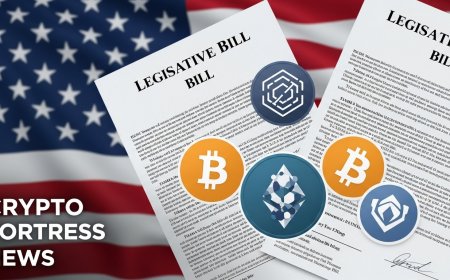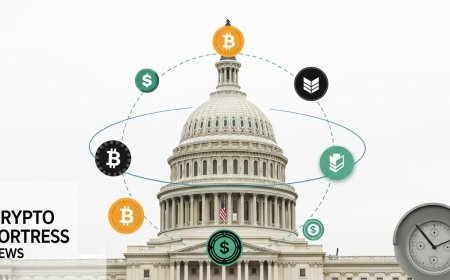Crypto Week on Capitol Hill: How New Legislation Could Impact Bitcoin and Ethereum
U.S. lawmakers return to Capitol Hill to debate sweeping crypto legislation. Here's how it could reshape the future of Bitcoin, Ethereum, and blockchain innovation.

Crypto Week on Capitol Hill: How New Legislation Could Impact Bitcoin and Ethereum
As the crypto industry continues to grow at breakneck speed, the U.S. Congress has once again turned its attention to regulation. This week, lawmakers on Capitol Hill are debating several bills that could dramatically shape the future of Bitcoin, Ethereum, and the broader digital asset ecosystem. From consumer protections to clearer definitions of tokens, the proposed legislation could either accelerate Web3 innovation — or stifle it.
The Bills on the Table
Among the proposals is the much-anticipated “Financial Innovation and Technology for the 21st Century Act,” or FIT21. The bill, sponsored by House Republicans and gaining some bipartisan support, aims to establish clear boundaries between the roles of the SEC and the CFTC. If passed, it would give the CFTC oversight of most cryptocurrencies that are not securities — such as Bitcoin and potentially Ethereum — while providing much-needed clarity on token classification.
Another key piece of legislation is the “Digital Asset Market Structure Bill,” which outlines the registration process for exchanges and token issuers. Advocates argue that the legislation would open the door to U.S.-based token launches without fear of retroactive enforcement from the SEC.
SEC vs. CFTC: Jurisdiction in Focus
At the heart of the regulatory debate is a turf war between the Securities and Exchange Commission (SEC) and the Commodity Futures Trading Commission (CFTC). SEC Chair Gary Gensler has maintained that most crypto tokens fall under his agency's purview, but recent court decisions have challenged this view — including Ripple’s partial victory in 2023. With the proposed bills, lawmakers are now trying to definitively assign authority, which could dramatically affect Ethereum and similar smart contract platforms.
Industry Reaction
Crypto leaders and advocates have responded with cautious optimism. Brian Armstrong, CEO of Coinbase, said the clarity could “unleash a new wave of responsible innovation” in the U.S. Web3 space. Meanwhile, advocacy groups like the Blockchain Association are lobbying for amendments that would better protect DeFi and self-custody wallets from regulatory overreach.
On the other hand, critics warn that parts of the legislation could centralize crypto too much, effectively regulating it out of existence for startups and open-source projects. “We can’t regulate this space like Wall Street — it’s not built to work that way,” said crypto lawyer Jake Chervinsky.
Impact on Bitcoin and Ethereum
Bitcoin, classified as a commodity by both the SEC and CFTC, stands to benefit from clearer jurisdiction. If FIT21 passes, Bitcoin markets could see less enforcement risk and greater institutional participation. Ethereum’s fate is more complicated. The question of whether ETH is a security or a commodity is still unresolved, and the new bills may indirectly push the decision onto regulators — or the courts.
Smart contract platforms like Ethereum, Solana, and others would also be affected by provisions related to staking, decentralized governance, and token sales. Some developers fear these rules could curb experimentation and limit permissionless innovation — the very DNA of crypto.
International Implications
Global crypto hubs such as the UK, UAE, and Singapore have already passed progressive frameworks. The U.S., long considered behind on crypto policy, could regain its leadership position if legislation is passed that strikes a balance between consumer safety and innovation. If it fails, developers may continue the exodus offshore, where clarity and opportunity await.
What’s Next?
The bills are currently being debated in both the House Financial Services Committee and the Senate Banking Committee. While passage is uncertain, the fact that crypto is now a consistent agenda item signals a major shift. The conversation has moved beyond speculation to substance — a win in itself for the maturing crypto sector.
Conclusion
This week on Capitol Hill could mark a turning point for crypto in America. Whether the legislation passes in its current form or undergoes major revisions, one thing is clear: the days of regulatory ambiguity are numbered. For Bitcoin, Ethereum, and the entire digital asset space, that clarity — even if imperfect — could unlock the next era of adoption and innovation.
What's Your Reaction?
 Like
0
Like
0
 Dislike
0
Dislike
0
 Love
0
Love
0
 Funny
0
Funny
0
 Angry
0
Angry
0
 Sad
0
Sad
0
 Wow
0
Wow
0



















